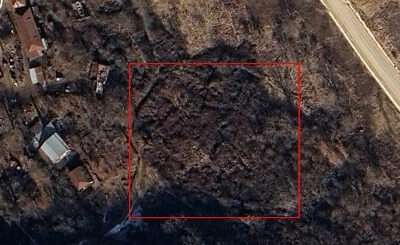From Revolution to Repression Pashinyan Has Reduced Armenians to ‘Toothless, Barking Dogs’

By Wally Sarkeesian
Gagrule.net
Pashinyan’s Rule: A Decade of Decline for Armenia?
Since his emergence on Armenia’s political stage in the late 2000s, Nikol Pashinyan has remained a polarizing figure. Critics argue that under the banner of reform, Pashinyan has systematically dismantled Armenia’s democratic institutions, weakened national sovereignty, and brought the country to the brink of political and cultural crisis.
A Controversial Past

Pashinyan first gained notoriety during the 2008 post-election protests, which resulted in the deaths of 10 people. He was sentenced to seven years in prison for his role in the unrest. Released in 2011 under an amnesty, he re-entered politics and by 2018 led a mass protest movement known as the Velvet Revolution. Though hailed by some as a democratic awakening, others argue the movement consolidated power in Pashinyan’s hands. During the ensuing election, he faced little to no serious competition, raising concerns about the fairness and openness of the democratic process.
Institutional Dismantling
Once in office, Pashinyan began dissolving key governmental institutions, including the Ministry of Diaspora. He pursued legal actions against former presidents and political rivals, often without presenting clear or conclusive evidence. Over time, he reshaped the judiciary by replacing judges and weakening independent legal oversight, leading many to believe Armenia’s legal system had been politically compromised.
The Artsakh Crisis
Perhaps the most devastating chapter of Pashinyan’s tenure came in 2020 with the Second Nagorno-Karabakh War. Accusations have surfaced that the conflict was mishandled—or even provoked—behind the scenes. The eventual defeat led to Armenia’s forced capitulation and the de facto transfer of Artsakh to Azerbaijan, triggering a mass exodus of ethnic Armenians. While Pashinyan portrayed the outcome as inevitable, critics allege he coordinated with Western powers, including the EU and the United States, to facilitate the handover. To date, the leadership of Artsakh remains imprisoned.
Normalizing with Turkey Amid Historical Denial

In parallel, Pashinyan has pursued controversial normalization talks with Turkey, a nation Armenia has long distrusted due to the unresolved trauma of the Armenian Genocide. Not only did Pashinyan attend President Erdoğan’s inauguration, but his government has also been accused of softening Armenia’s stance on genocide recognition—an act viewed by many as betrayal.
Cracking Down on Church and Civil Society

Domestically, Pashinyan has expanded the power of internal security forces, creating what some liken to a “personal police state” reminiscent of Erdoğan’s Turkey. Opposition leaders, clergy members, and even business owners have been arrested. Most recently, reports have emerged of the state targeting Armenian churches and jailing priests under various pretexts—raising alarm about religious repression in a traditionally devout society.
A Silenced Nation?
Despite mounting dissatisfaction, public protests have yielded little change. Demonstrations have been frequent but largely ineffective. Many Armenians now describe themselves as powerless—reduced to “toothless, barking dogs” in their own homeland, as one critic put it.
Conclusion
Pashinyan’s time in power has been marked by deep polarization, institutional collapse, and national crisis. Whether viewed as a reformer gone astray or a calculated opportunist, his legacy is likely to be one of the most contentious in Armenia’s modern history.





